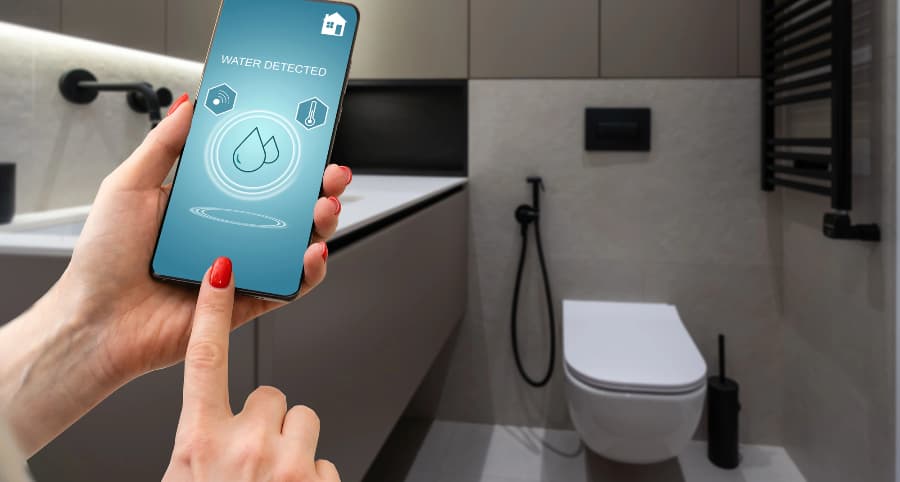How does a water sensor work and why use one with your College Station smart home?

One tiny leak at your house can result in big issues and thousands of dollars worth of damage. You must protect against this danger; luckily, there’s a simple way to accomplish this. A water sensor is a budget-friendly, simple, and effective solution. Explore how they work and why you should connect water sensors to your College Station smart home.
How water sensors protect College Station your home
Water infiltrates homes in various ways, whether from a storm-related event, plumbing problem, appliance snafu, or just human error. Whatever way it happens, you have to know right away, and this is how water sensors help. But how precisely do they work?
The majority of water sensors are conductive and operate with a pair of electrodes. When water infiltrates the space between the electrodes, an electrical connection is created, activating your alarm. You’ll also find capacitive sensors that release an electrical field. When water contacts the conductive surfaces of these sensors, the field is disrupted, and your alarm sounds. Optical sensors using infrared LED light are another choice.
Get more from your water sensor
A few advanced water sensors give you even more peace of mind as they have integrated temperature sensors. This is an outstanding feature in preventing frozen pipes. If there’s an extreme drop in temperature, you’ll be notified immediately. Taking measures before pipes burst will protect you from water infiltration and exorbitant repair costs.
Why incorporate water sensors into your College Station smart home?
When water problems occur, you have to be alerted right away. You can achieve this objective by integrating water sensors into your smart home. Whether you’re on site to hear the alarm or away, you’ll be sent an immediate alert on your mobile device. In addition, your round-the-clock monitoring team will be informed. Every second counts in a water emergency to limit the destruction and interruption to your life.
Where should you install water sensors?
Any spot prone to water infiltration is an ideal place for water sensors. Put them in these spots:
- Bathrooms: Attach near bathtubs or behind toilets.
- Basements: Water frequently infiltrates lower levels via leaky walls or as a result of heavy rain or faulty sump pumps.
- Next to water heaters or appliances: Any water-using appliance might leak in time.
- Underneath sinks: Water sensors are ideal for discovering pipe leaks in locations you can’t see.
- Attics: Detect roof leaks quickly and avert costly repairs.
Get water sensors with your Vivint smart home
Give your residence the robust protection it requires with Vivint’s innovative tools. Our water sensors in College Station link to your Vivint smartphone app to send you instant alerts any time your alarm is triggered. You also get incorporated temperature sensors to avoid pipe freezing. Learn more about the smart home components available in College Station by dialing (979) 356-2138 today.